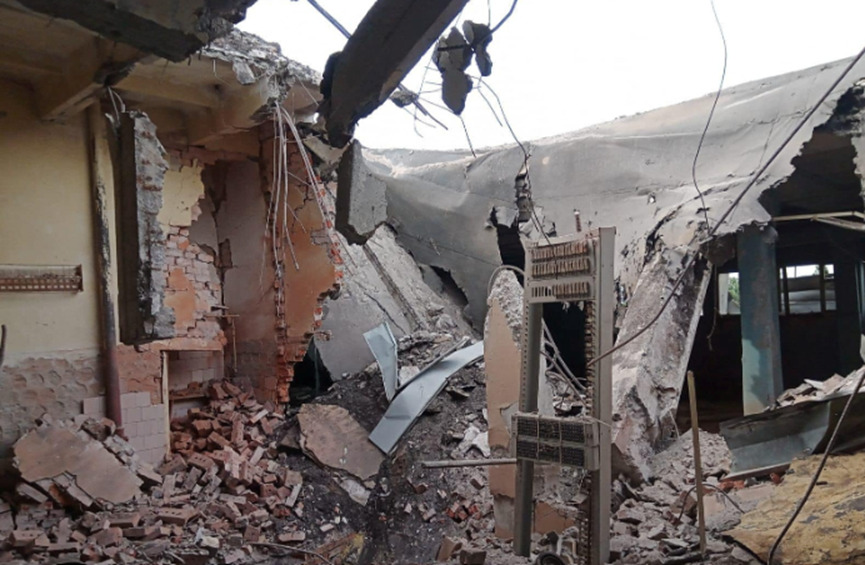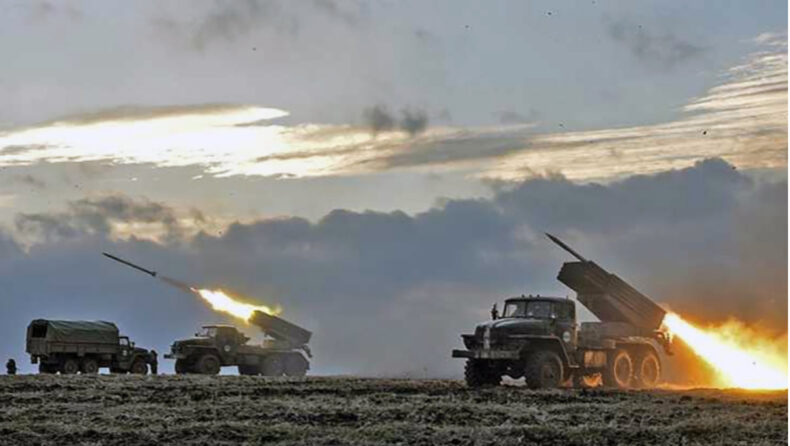Russia’s air attack on the southern port of Odesa was repelled for a second consecutive night, with Ukrainian air defense systems being engaged in the early hours of Wednesday.
On Tuesday, after withdrawing from a U.N.-backed deal for safe Black Sea grain exports, Russia targeted Ukrainian ports. This decision sparked concern, particularly in Africa and Asia, about the potential increase in food prices and hunger.
On the Telegram messaging app, Oleh Kiper, the governor of Odesa, issued a warning, stating, “Avoid coming near the windows and refrain from firing or displaying the actions of the air defense forces.”
From shortly after midnight on Wednesday, the entire eastern part of Ukraine was placed under air raid alerts. Furthermore, in other battlefield updates, there were significant discrepancies between Moscow and Kyiv’s narratives regarding the fighting in northeastern Ukraine on Tuesday. Following six weeks since Ukraine began its counteroffensive in the east and south, Russia has now commenced its own ground offensive in the northeast. As per Moscow’s perspective, the Ukrainian assault has not achieved its intended success.

Officials about the Russian strikes
According to a spokesperson from the Russian Defense Ministry, their forces have made advancements of up to 2 km (1.2 miles) towards Kupiansk, a crucial railway junction located in the northeastern Kharkiv region.
Nevertheless, according to Hanna Maliar, the Ukrainian Deputy Defense Minister, the initiative in the area has now transitioned to the Ukrainian forces. She stated that Ukrainian forces have achieved new territorial gains near Bakhmut in the east, a town that had been captured by Russian forces in May following several months of intense battles.
Valery Shershen, the spokesperson for Ukrainian troops stationed on the southern front, confirmed the presence of intense fighting in the vicinity of the village of Staromayorske. In a statement to the Espreso TV online outlet, he reported that they have made advancements along the streets; however, he emphasized that the Ukrainian forces have not yet fully taken control of the village.
According to reports from the Russian Defense Ministry, Moscow’s forces targeted and struck groups of Ukrainian soldiers in the vicinity of Staromayorske.
Despite equipping its forces with billions of dollars’ worth of new Western weapons and ammunition since commencing the counteroffensive last month, Ukraine has not yet attempted a significant breakthrough across heavily fortified Russian defense lines.
On Tuesday, at the United Nations, U.N. spokesman Stephane Dujarric mentioned that several ideas are under consideration to facilitate the transportation of Ukrainian and Russian grain and fertilizer to global markets. Moscow’s actions have raised significant concerns, particularly in Africa and Asia, regarding the potential impact of rising food prices and increased hunger.
In July of the previous year, the U.N. and Turkey brokered the Black Sea deal to address the global food crisis, which was exacerbated by Russia’s invasion of Ukraine in February 2022 and its subsequent blockade of Ukrainian ports. Both Russia and Ukraine are major grain exporters worldwide.
Russia has indicated that it might reconsider its participation in the grain deal, but with a condition that its demands for relaxed rules on its food and fertilizer exports are met. However, Western countries view this as an effort by Russia to exert pressure over food supplies and potentially force a reduction in financial sanctions, even though the existing sanctions already permit Russia to sell food.













